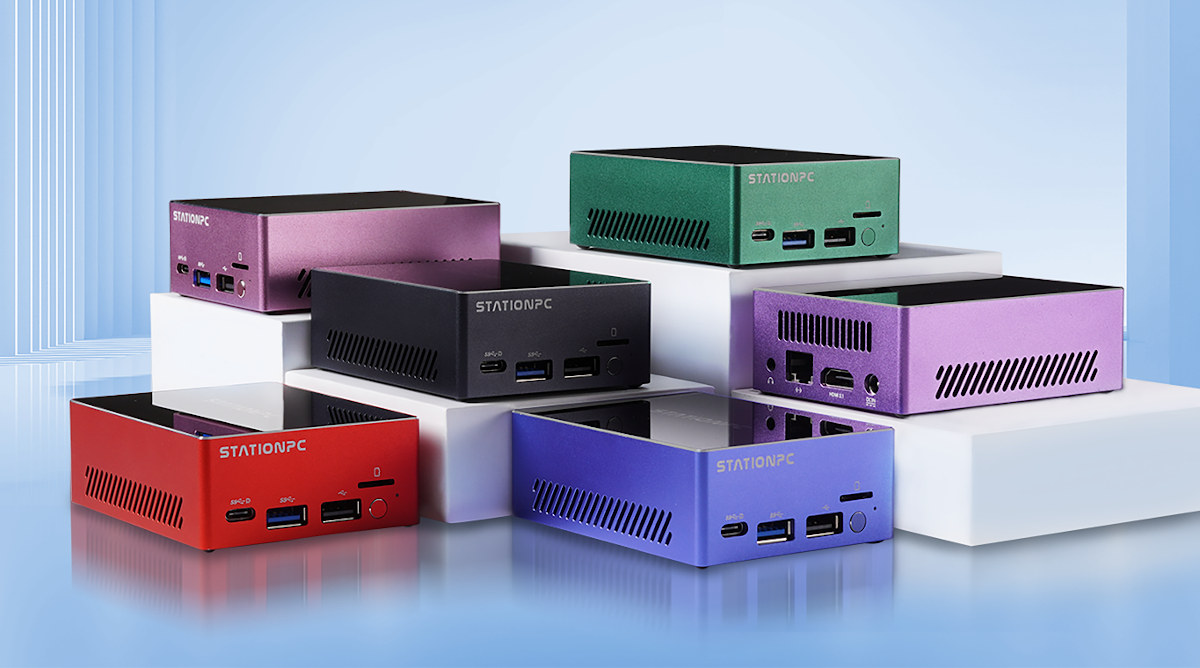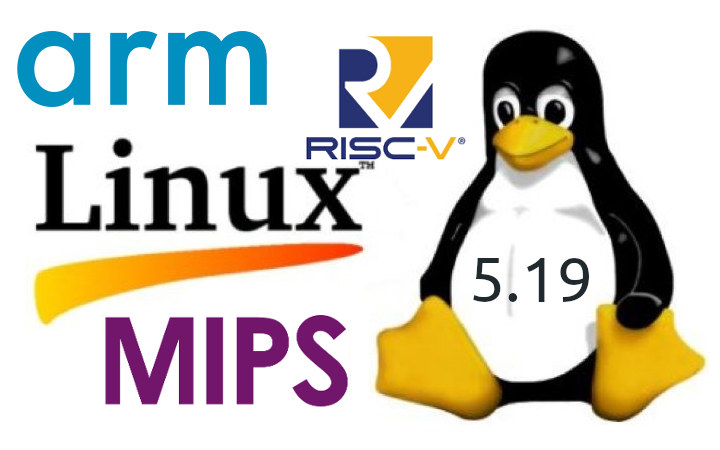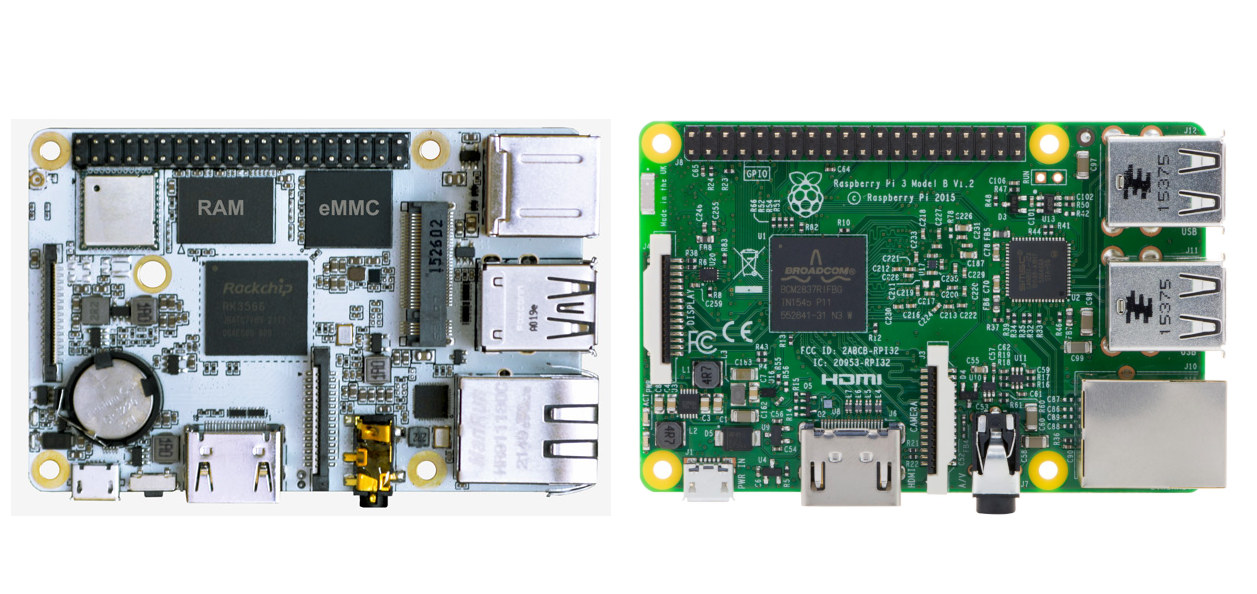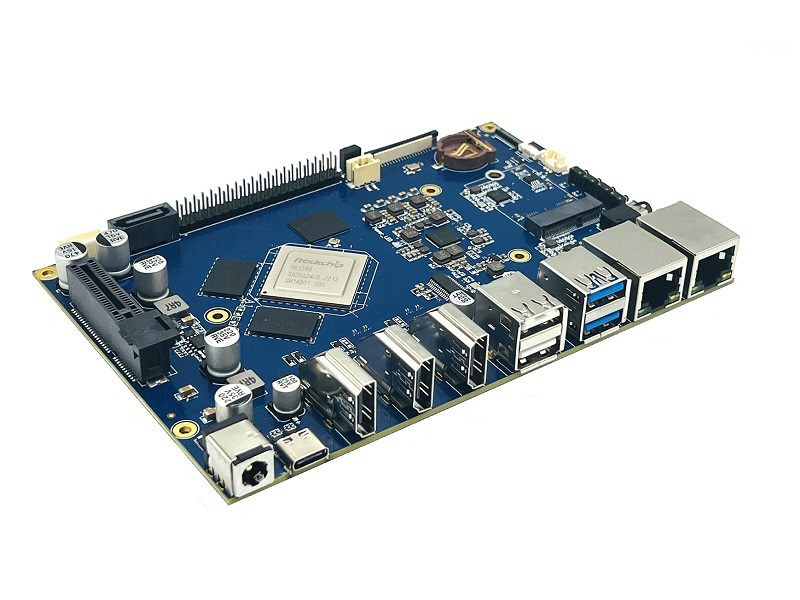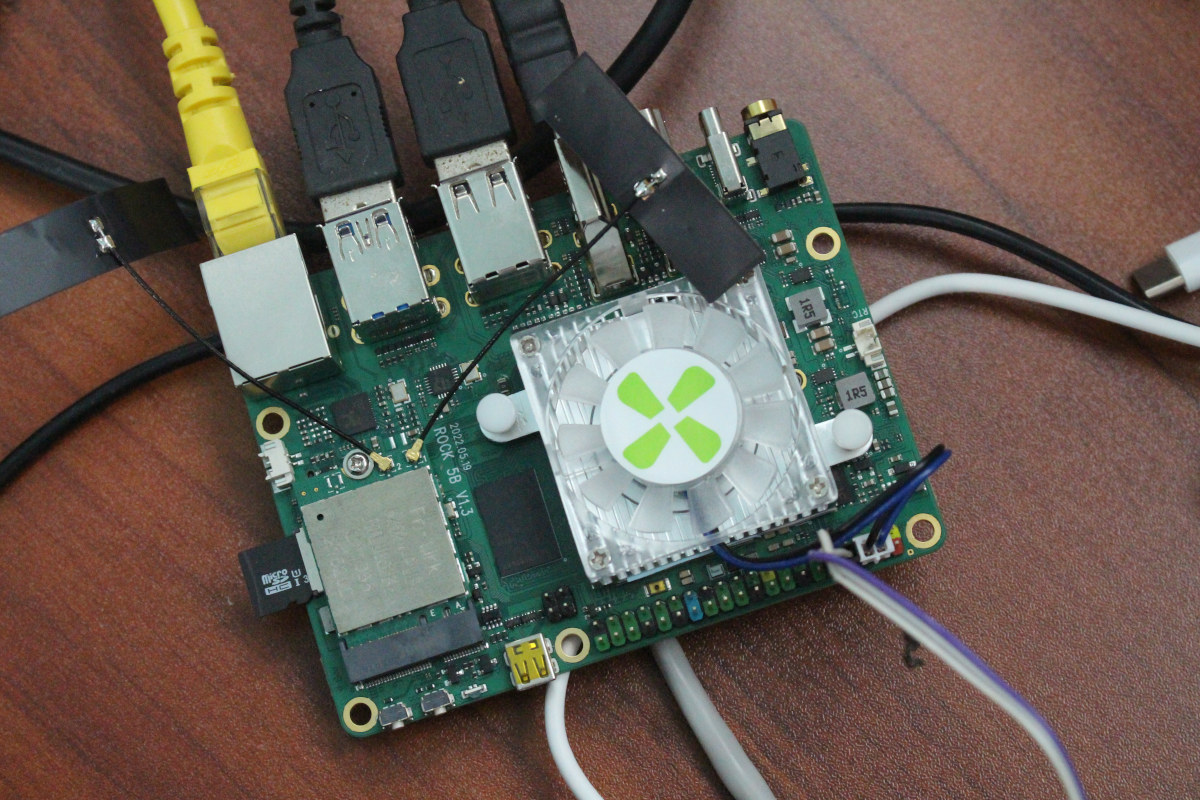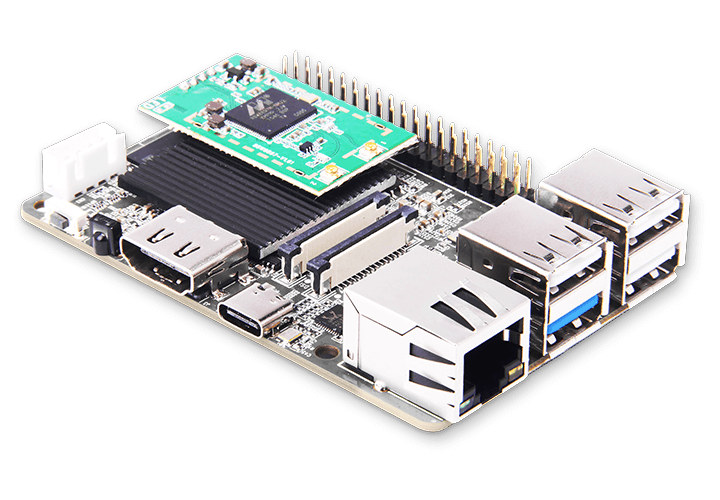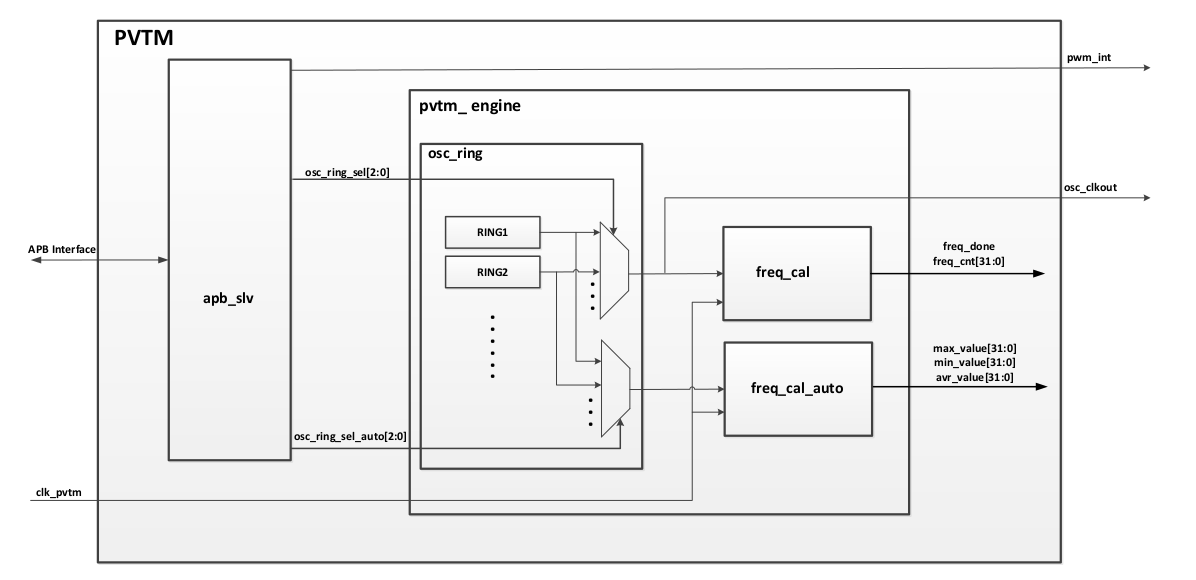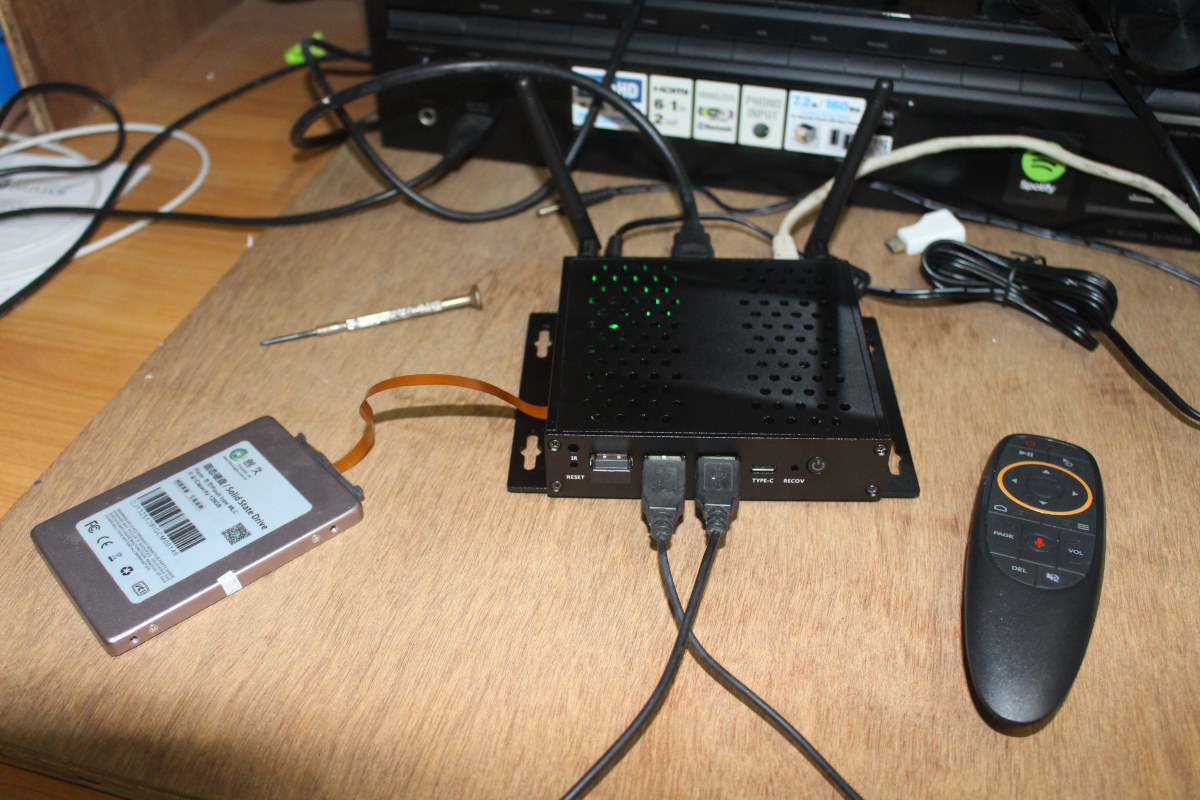Firefly Station M3 is a mini PC powered by Rockchip RK3588S octa-core Cortex-A76/A55 processor, the cost-down version of the RK3588, and equipped with up to 16GB RAM, 128GB eMMC flash storage, support for M.2 SATA and NVMe SSD, 8K capable HDMI and DisplayPort (USB-C) video outputs, Gigabit Ethernet, WiFi 5, and more. The new model follows the Station M1 and Station M2 mini PCs with Rockchip RK3328 and RK3566 respectively and will deliver 4 times the CPU performance and up to 8 times the 3D graphics performance compared to the M2 model, but in a slightly larger and about twice as thick enclosure – probably for active cooling – than the first two Station M fanless mini PCs. Firefly Station M3 specifications: SoC – Rockchip RK3588S octa-core processor with 4x Cortex-A76 cores @ up to 2.4 GHz, four Cortex-A55 cores, Arm Mali-G610 MP4 quad-core GPU with OpenGL ES 3.2, OpenCL […]
Linux 5.19 Release – Main changes, Arm, RISC-V and MIPS architectures
Linus Torvalds has just announced the release of Linux 5.19. It should be the last 5.xx version, with Linux 6.0 coming for the next cycle: So here we are, one week late, and 5.19 is tagged and pushed out. The full shortlog (just from rc8, obviously not all of 5.19) is below, but I can happily report that there is nothing really interesting in there. A lot of random small stuff. In the diffstat, the loongarch updates stand out, as does another batch of the networking sysctl READ_ONCE() annotations to make some of the data race checker code happy. Other than that it’s really just a mixed bag of various odds and ends. On a personal note, the most interesting part here is that I did the release (and am writing this) on an arm64 laptop. It’s something I’ve been waiting for for a _loong_ time, and it’s finally reality, […]
Compact3566 – A Rockchip RK3566 SBC that closely follows Raspberry Pi 3 form factor
We’ve very recently written about Geniatech XPI-3566 SBC powered by Rockchip RK3566 CPU that somewhat follows the Raspberry Pi 3 Model B form factor. Boardcon Compact3566 offers similar features, but it appears to keep exactly the same port assignment as the Raspberry Pi SBC, so it should be compatible with more accessories. The Compact3566 SBC ships with up to 8GB LPDDR4 and 128GB eMMC flash, features Gigabit Ethernet & WiFi 5, four USB 3.0/2.0 ports, HDMI 2.0 output, MIPI DSI and CSI interfaces, the 40-pin GPIO header, as well as extra built-in features such as an M.2 socket for storage, RTC with battery, and a built-in microphone. Compact3566 specifications: SoC – Rockchip RK3566 quad-core Arm Cortex-A55 @ up to 1.8 GHz with ARM Mali-G52 2EE GPU with support for OpenGL ES 1.1/2.0/3.2. OpenCL 2.0. Vulkan 1.1, 0.8 TOPS NPU System Memory – 2GB, 4GB, or 8GB LPDDR4/LPDDR4X Storage 8GB, 16GB, […]
Banana Pi BPI-W3 – An RK3588 SBC with dual Gigabit Ethernet, SATA, PCIe x4 slot
Banana Pi BPI-W3 is yet another upcoming Rockchip RK3588 SBC but with a different set of features, notably the presence of two Gigabit Ethernet ports, a PCIe x4 slot, and a SATA port, besides to more common dual HDMI output, HDMI input, USB 2.0/3.0 ports, etc… The board layout is somewhat similar to the company’s BPI-RK3588 SBC but with a system-on-module, and instead, the Rockchip RK3588 processor is soldered directly onto the board together with 8GB LPDDR4, and 32GB eMMC flash. Banana Pi BPI-W3 specifications (preliminary): SoC- Rockchip RK3588 octa-core processor with 4x Cortex-A76 cores @ up to 2.4 GHz (YMMV), 4x Cortex-A55 cores @ 1.8 GHz, an Arm Mali G610MC4 GPU, a 6 TOPS NPU, 8K 10-bit decoder, 8K encoder System Memory – 8GB LPDDR4 Storage – 32GB eMMC flash, SATA III port Video Output – 2x HDMI 2.1 ports up to 8Kp60 Input – 1x HDMI 2.0 input […]
Rock 5B RK3588 SBC preview – What works, what doesn’t in Debian 11
I’ve recently received an early sample of Radxa ROCK5 Model B (aka ROCK 5B) SBC part of the “Developer Edition” batch with 16GB RAM, and already showed the hardware and it booting successfully in Debian 11.
I’ve now spent more time with the board, and as part of the “debug party” tested performance and features in Debian 11. As one would expect, some things work fine, providing excellent performance, but others still need improvements.
Geniatech XPI-3566 is a business-card sized Rockchip R3566 SBC
Geniatech has added a new member to its XPI SBC family with the business card-sized XPI-3566 board powered by a Rockchip RK3566 quad-core Cortex-A55 processor, and mostly following the Raspberry Pi 3 form factor like its predecessors. The single board computer comes with 1GB to 8GB RAM, up to 64GB eMMC flash, HDMI 2.0 video output, Gigabit Ethernet, dual-band WiFi, a few USB ports, and a 40-pin GPIO header. It is said to target retail, “interactive communication”, and education applications. Geniatech XPI-3566 specifications: SoC – Rockchip RK3566 quad-core Cortex-A55 processor @ up to 1.8 GHz with Arm Mali-G52 2EE GPU, 0.8 TOPS AI accelerator System Memory – 2GB DDR (1GB, 4GB, or 8GB optional) Storage 16GB eMMC flash (8GB, 32GB, 64GB optional) MicroSD card socket Video Output HDMI 2.0 up to 4Kp60 MIPI DSI connector (not listed in the specs, but it can clearly be seen on the board) Camera […]
What is PVTM? Or why your Rockchip RK3588 CPU may not reach 2.4 GHz
While the Rockchip RK3588 processor is advertised as reaching 2.4 GHz, not all RK3588 chips may achieve this frequency. The keyword is PVTM (Process-Voltage-Temperature Monitor), and we’ll try to explain why it does, and why some of the RK3588 processors may only be clocked at about 2.3 GHz, while others will run fine at 2.4 GHz. This all started with Rock 5B SBC debug party, where we noticed our boards did not reach the same frequency. Willy Tarreau noted the “pvtm” value was different between our boards: Willy’s board: (Cortex-A76 cluster 1 @ 2,304 MHz, cluster 2 @ 2,352 MHz)
|
1 2 3 4 5 6 7 |
# dmesg|grep cpu.*pvtm [ 2.606324] cpu cpu0: pvtm=1482 [ 2.606542] cpu cpu0: pvtm-volt-sel=3 [ 2.614206] cpu cpu4: pvtm=1722 [ 2.618389] cpu cpu4: pvtm-volt-sel=5 [ 2.626814] cpu cpu6: pvtm=1744 [ 2.630998] cpu cpu6: pvtm-volt-sel=6 |
CNXSoft board (Cortex-A76 cluster 1 @ 2,304 MHz, cluster 2 @ 2,304 MHz) :
|
1 2 3 4 5 6 |
[ 3.620281] cpu cpu0: pvtm=1490 [ 3.620376] cpu cpu0: pvtm-volt-sel=4 [ 3.627377] cpu cpu4: pvtm=1736 [ 3.631320] cpu cpu4: pvtm-volt-sel=5 [ 3.639103] cpu cpu6: pvtm=1732 [ 3.643069] cpu cpu6: pvtm-volt-sel=5 |
Thomas Kaiser (tkaiser) board: (Cortex-A76 cluster 1 @ 2,400 MHz, cluster 2 @ 2,400 MHz)
|
1 2 3 4 5 6 |
[ 3.117399] cpu cpu0: pvtm=1528 [ 3.117491] cpu cpu0: pvtm-volt-sel=5 [ 3.124529] cpu cpu4: pvtm=1785 [ 3.128495] cpu cpu4: pvtm-volt-sel=7 [ 3.136234] cpu cpu6: pvtm=1782 [ 3.140173] cpu cpu6: pvtm-volt-sel=7 |
For reference, CPU 0 to 3 are Cortex-A55 cores, CPU 4-5 are two Cortex-A76 cores (cluster 1), and […]
Mekotronics R58 review – Part 2: Android 12 on Rockchip RK3588 CPU
I’ve written the first part of Mekotronics R58 review last month with an unboxing, teardown, and first boot with 3D graphics benchmarks. I’ve now had more time to play with Android 12 on the Rockchp RK3588 mini PC, so I’ll report my experience with the device. User interface and settings As already mentioned, the box ships with Android 12 for TV and the stock launcher. The Google Play store is working, and I had no troubles installing all apps I needed for the review. Most of the settings are pretty much standard. While the first time, I used Ethernet, and also tried WiFi 6 connecting the R58 to Xiaomi Mi AX6000 router. It worked but not without some effort, as initially, all I got were messages like “Couldn’t find SSID” both with 2.4GHz and 5GHz SSIDs. It turned out I had to disconnect the Ethernet to make WiFi work, and […]


